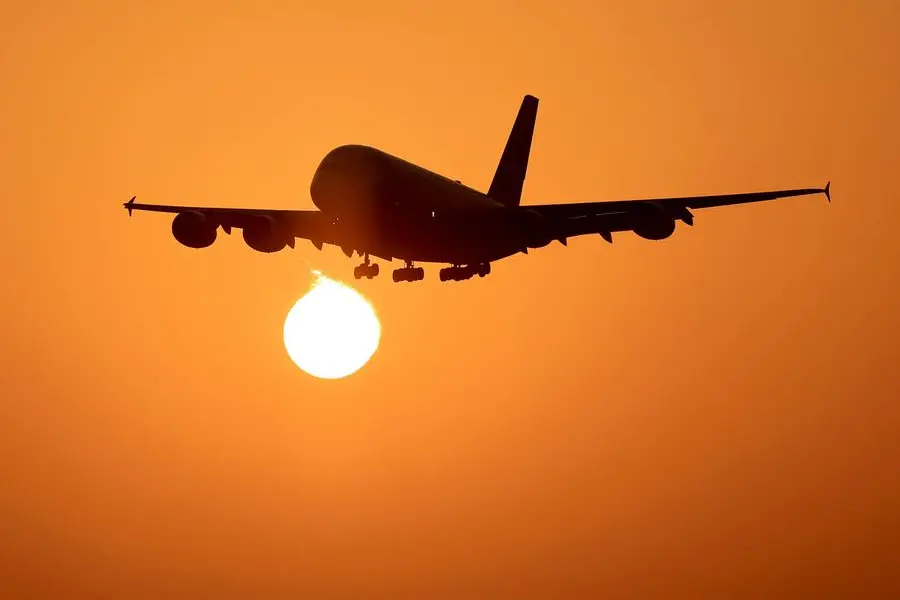PHOTO
Cathay Pacific said it will resume full operations by Saturday after replacing defective engine fuel lines on its Airbus A350 planes, a problem that had forced it to cancel dozens of flights this week.
Hong Kong-based Cathay, one of the largest operators worldwide of the A350 jetliner, grounded 48 planes for checks on Monday after a Zurich-bound flight had to return to the city shortly after take-off.
The inspection found that components on 15 of the A350s -- whose engines are powered by British manufacturer Rolls-Royce -- had to be replaced.
"Fifteen aircraft were identified with engine fuel lines that require replacement. Of these, six have already undergone successful repairs and are cleared to operate," it said in a statement.
"The remaining nine aircraft will be repaired and are expected to resume operation by Saturday."
When Cathay had initially raised the alarm Monday, it said "the component was the first of its type to suffer such failure on any A350 aircraft worldwide".
The incident prompted other airlines in the region to carry out similar checks on their A350-900 and A350-1000 models.
Cathay so far have cancelled 90 flights between Monday to Saturday, with mainly regional routes including connections to Singapore, Taipei, Tokyo, and Bangkok hit.
Aboard a Cathay A350-900 plane to San Francisco on Wednesday, a Hong Kong passenger surnamed Yuen told AFP that he was "worried but I don't know who I can ask whether this aircraft has been checked".
"I thought it would be cancelled but it wasn't," Yuen texted from the runway.
"I would feel better if Cathay could send us a message saying the plane has been checked but they never did that."
Japan Airlines confirmed that three of their A350 jets turned up no issues, while two more were undergoing inspections Wednesday.
A Thai Airways spokesperson said on Wednesday no problems were found after they inspected their 23-plane fleet of A350s, and the airline was using their planes as normal.
Singapore Airlines said on Tuesday that they were also carrying out checks but that there was "no impact" on flights operating with their A350-900 fleet.
In Europe, Air France -- which uses A350-900 models -- said it was in contact with Airbus and Rolls-Royce.
Both firms "have not advised or mandated airlines to perform any checks", it said.
- 'Critical' for fuel flow -
Airbus and Rolls-Royce have so far said they are cooperating with Cathay, and an ongoing investigation prevents them from commenting further.
Hong Kong's Civil Aviation Department said Wednesday it has contacted the European Union Aviation Safety Agency and other relevant aviation authorities to notify them about the case.
Terence Fan, an aviation expert at Singapore Management University, said defective engine lines could affect fuel flow, which is "urgent and of critical importance".
"This seems to be a mechanical issue... one would definitely not want the same to be found in two out of two engines on the same aircraft mid-air," he told AFP.
Fan said a mechanical issue can be fixed quickly by replacing parts, though he called it "a bad sign" the issue hit one-third of Cathay's A350 fleet.
The A350 plane is often deployed in long-haul flights that traverse oceans and sparsely populated areas with few airports to divert to if there are issues.
Last November, Emirates chief executive Tim Clark expressed concerns about the durability and longevity of A350 engines.
Qatar Airways -- which operates 24 A350-1000s, the same type of aircraft Cathay had to return en route to Zurich -- also had a years' long dispute with Airbus over its jets, which was only resolved in 2023.
Qatar grounded the jets in 2021 after paint started peeling on the exterior of some of its A350 planes. Its regulator said there could be a threat to the jet's lightning protection.
Rolls-Royce has defended its Trent XWB-97 engines and said it was taking steps to improve their durability.





















